第40章 CHAPTER V.(6)
The Queen used it in the same manner and place for undressing herself in the evening. She went to bed in corsets trimmed with ribbon, and sleeves trimmed with lace, and wore a large neck handkerchief. The Queen's combing cloth was presented by her first woman if she was alone at the commencement of the toilet; or, as well as the other articles, by the ladies of honour if they were come. At noon the women who had been in attendance four and twenty hours were relieved by two women in full dress; the first woman went also to dress herself. The grandee entrees were admitted during the toilet; sofas were placed in circles for the superintendent, the ladies of honour, and tirewomen, and the governess of the children of France when she came there; the duties of the ladies of the bedchamber, having nothing to do with any kind of domestic or private functions, did not begin until the hour of going out to mass; they waited in the great closet, and entered when the toilet was over. The Princes of the blood, captains of the Guards, and all great officers having the entry paid their court at the hour of the toilet. The Queen saluted by nodding her head or bending her body, or leaning upon her toilet-table as if moving to rise; the last mode of salutation was for the Princes of the blood. The King's brothers also came very generally to pay their respects to her Majesty while her hair was being dressed. In the earlier years of the reign the first part of the dressing was performed in the bedchamber and according to the laws of etiquette; that is to say, the lady of honour put on the chemise and poured out the water for the hands, the tirewoman put on the skirt of the gown or full dress, adjusted the handkerchief, and tied on the necklace. But when the young Queen became more seriously devoted to fashion, and the head-dress attained so extravagant a height that it became necessary to put on the chemise from below,--when, in short, she determined to have her milliner, Mademoiselle Benin, with her whilst she was dressing, whom the ladies would have refused to admit to any share in the honour of attending on the Queen, the dressing in the bedchamber was discontinued, and the Queen, leaving her toilet, withdrew into her closet to dress.
On returning into her chamber, the Queen, standing about the middle of it, surrounded by the superintendent, the ladies of honour and tirewomen, her ladies of the palace, the chevalier d'honneur, the chief equerry, her clergy ready to attend her to mass, and the Princesses of the royal family who happened to come, accompanied by all their chief attendants and ladies, passed in order into the gallery as in going to mass. The Queen's signatures were generally given at the moment of entry into the chamber. The secretary for orders presented the pen. Presentations of colonels on taking leave were usually made at this time. Those of ladies, and, such as had a right to the tabouret, or sitting in the royal presence, were made on Sunday evenings before card-playing began, on their coming in from paying their respects. Ambassadors were introduced to the Queen on Tuesday mornings, accompanied by the introducer of ambassadors on duty, and by M. de Sequeville, the secretary for the ambassadors. The introducer in waiting usually came to the Queen at her toilet to apprise her of the presentations of foreigners which would be made. The usher of the chamber, stationed at the entrance, opened the folding doors to none but the Princes and Princesses of the royal family, and announced them aloud. Quitting his post, he came forward to name to the lady of honour the persons who came to be presented, or who came to take leave; that lady again named them to the Queen at the moment they saluted her; if she and the tirewoman were absent, the first woman took the place and did that duty. The ladies of the bedchamber, chosen solely as companions for the Queen, had no domestic duties to fulfil, however opinion might dignify such offices. The King's letter in appointing them, among other instructions of etiquette, ran thus: "having chosen you to bear the Queen company." There were hardly any emoluments accruing from this place.